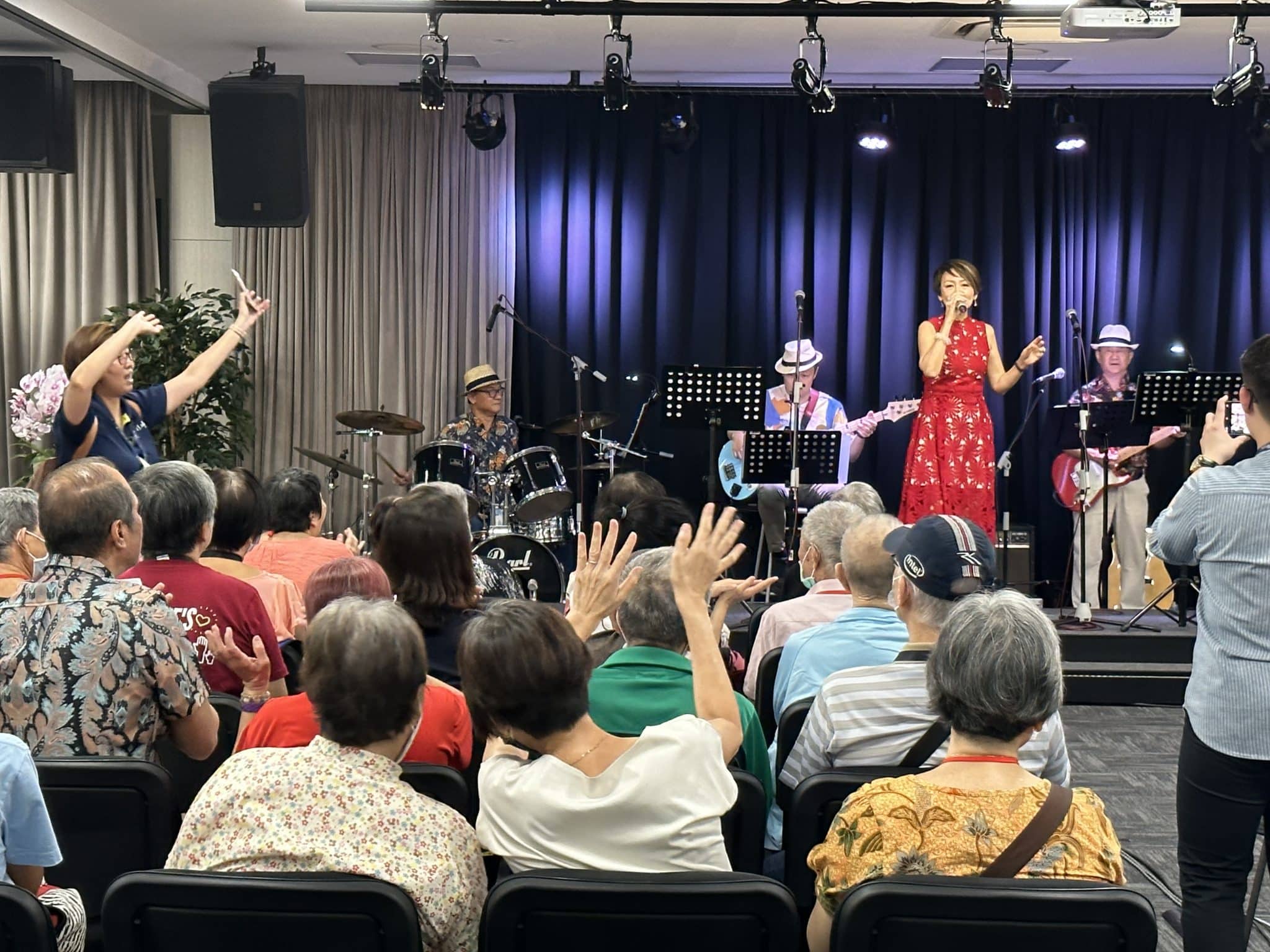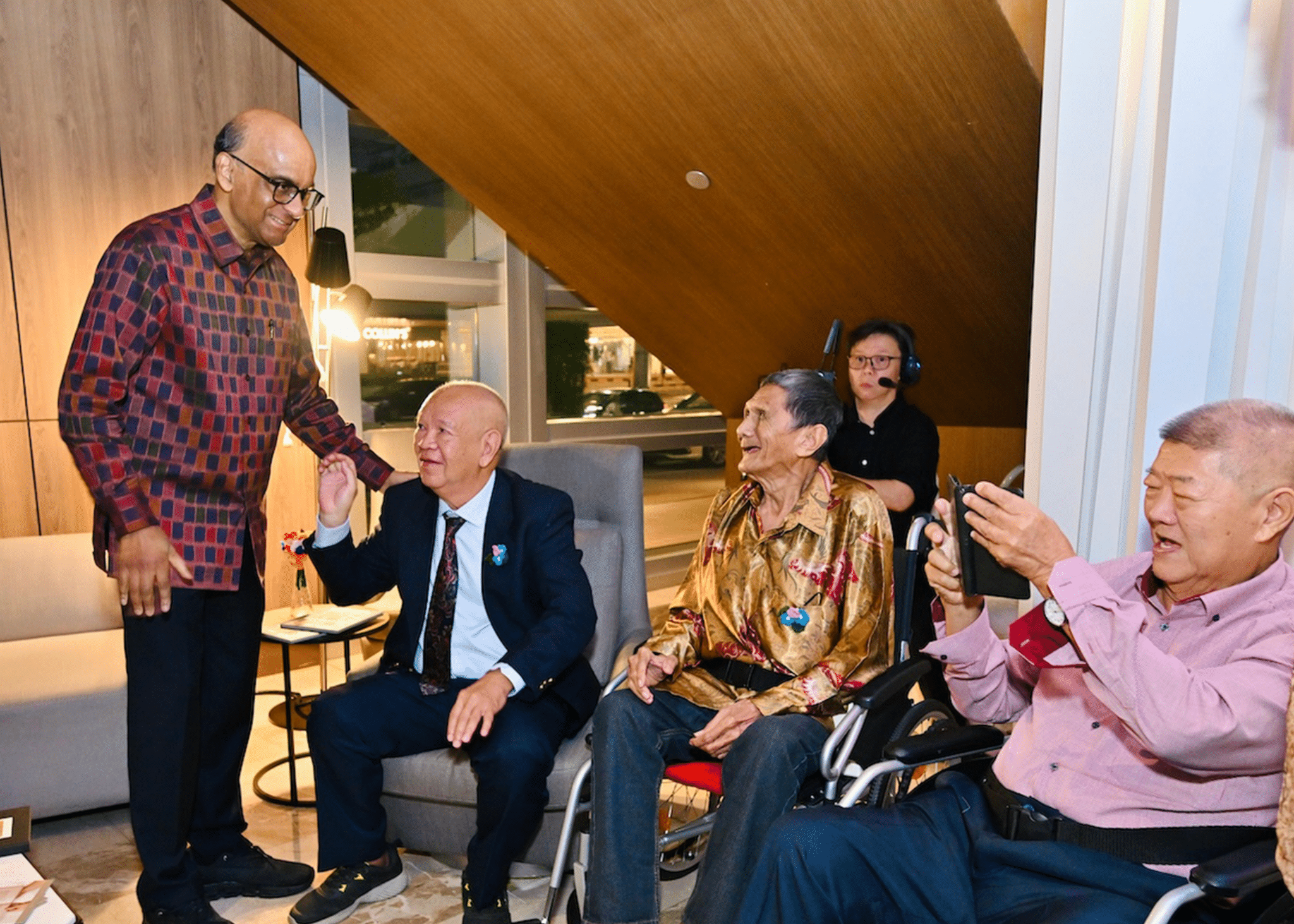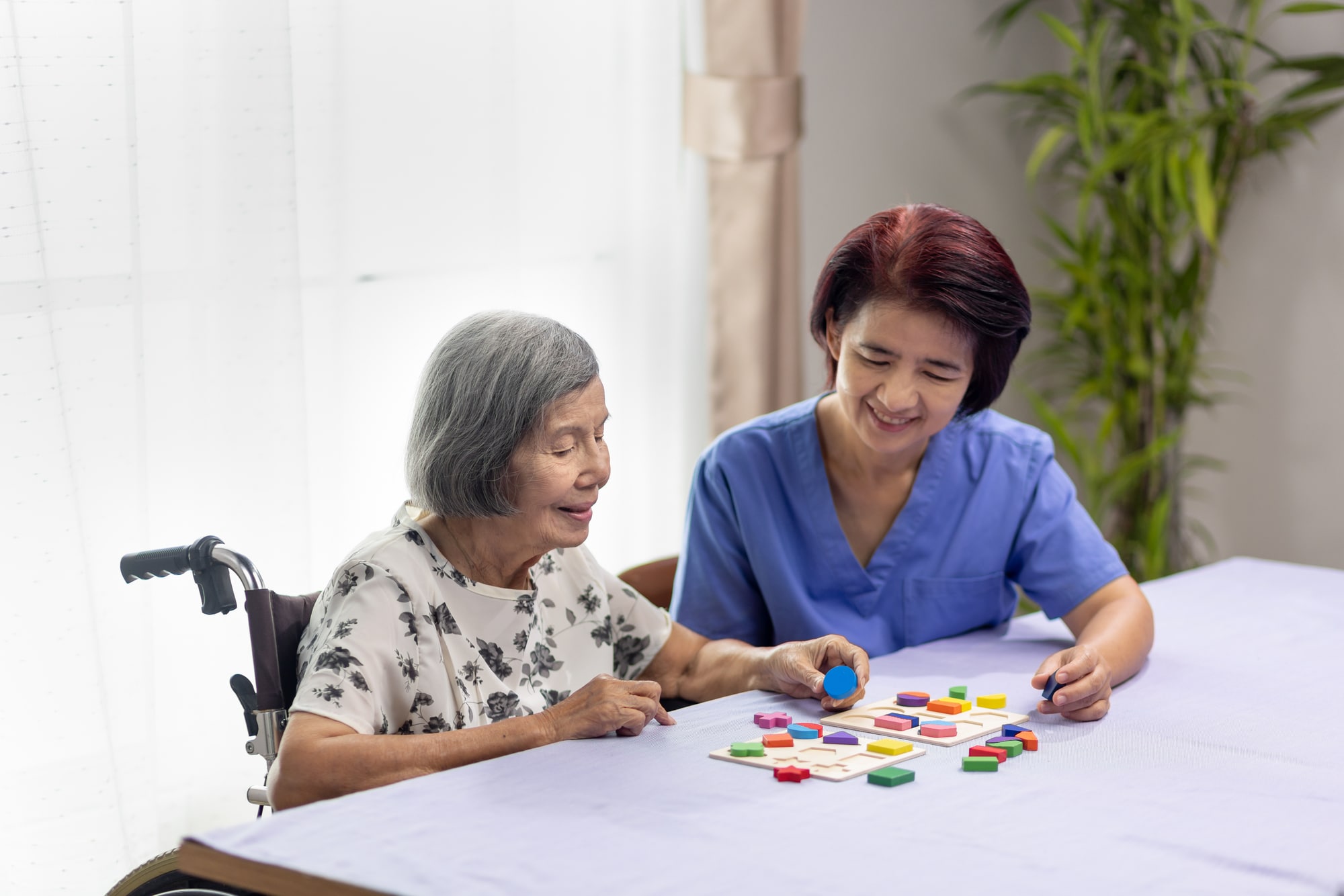5 tips on holding meaningful conversations with those with dementia
by Christine Leow // October 21, 2024, 4:17 pm

Dementia may have stolen their memories but they can still make meaning of their lives. The St Luke's Eldercare CommCare Symposium touched on how caregivers can engage those with dementia in meaningful conversation. Photo from Depositphotos.com.
The staff at a dementia daycare centre had planned a lovely walk in the outdoors for the patients. The weather, however, did not hold up. Rained in, they decided to let the patients prepare lunch together instead.
“Can we help them to find that meaning and purpose out of love?”
One woman set about happily preparing a sushi meal. When Dr Kenny Tan, who was visiting the facility in Japan, asked why the woman was preparing so much food, he was told that she was possibly thinking that the food was for her young son.
In reality, her son had already grown up. But, in her mind, he was still a child and she was happy to provide for him.
“Sometimes we like to correct our elders, ‘No, your son is working. He’s no more the young baby you used to know’,” said Dr Tan, CEO of St Luke’s ElderCare (SLEC).
“Does it really matter if they think they are preparing a meal for a young child when their children have grown up? In that action that they do, can we help them to find that meaning and purpose out of love?”

Dr Kenny Tan opened the symposium with a reminder to move from care to creating meaning and purpose for those with dementia, from providing service to being a sojourner with them, and from information to an invitation where there are memories to preserve.
Dr Tan was speaking at the SLEC CommCare Symposium 2024 (September 20) that dealt with the topic “Dementia and Spirituality: Building Connections, Conversations and Collaborations”. The story he shared underscored the challenges of interacting with those with dementia.
The following are tips on how to connect in conversation with those suffering from dementia and to connect them with God, shared by Sister Geraldine Tan and Rev Dr Norman Wong during the Symposium. Sister Geraldine is the former Executive Director of St Joseph’s Home under the Catholic Welfare Services. Rev Wong is the Head Chaplain of the Methodist Welfare Services.
1. Inhabit the moment
Sister Geraldine calls it “ministry of the now”.
She tells the story of a 92-year-old woman at an Easter celebration. While everyone was singing Easter songs, she wanted to sing Christmas carols.

Sister Geraldine Tan talked about having Spiritual Connections with God.
“How many of you would sing the Christmas song? How many of you would explain to her, ‘You sing it later (in the year)’?”
“Give your best for the now that they can remember and enjoy the now.”
Sister Geraldine not only sang Christmas songs with the woman, she went to her office and wrapped up a Christmas present for her as well.
People with dementia sometimes live in moments that are not in sync with reality. Instead of trying to reason with them to get them to conform to reality, Sister Geraldine advocates the “ministry of the now” that lets them “live in the space where they are enjoying freedom of thinking”.
“Give your best for the now that they can remember and enjoy the now.”
2. Make connections to have conversations
“The ability to understand them before you minister to them is important.”
Sister Geraldine related the story of a woman with dementia who was admitted into the ICU because of a stroke. She seemed to have involuntary movements in her fingers so the nurses tried to put plasters on her fingers to help her.
Sister Geraldine knew her and remembered that the woman always held her rosary in her hand. When Sister Geraldine gave her a rosary, the finger movements stopped.
“It was a lost connection (to a physical object) for her. The ability to understand them before you minister to them is important.”
The connection to the person with dementia then becomes the basis for conversations with them.
3. Let the Bible come alive
Make Bible stories come alive, said Sister Geraldine, much like how you would present the Bible to children. That offers another topic of conversation.
“You can use toys so there is something there for them to connect – sheep, fish, loaves.”
“He understood. God went to bed so he goes to bed.”
During a visit to the home of an elderly man with dementia, Sister Geraldine had the occasion to make a Bible story come alive to help the man. The family had been having difficulty getting him to go to bed each night. Sister Geraldine suggested using the creation story in the Bible to encourage him.
“First day, God made this. Second day, third day. Then the seventh day, God went to bed because He rested. Use it so that going to bed becomes connected with creation from God.
“Since then, he didn’t have any problem going to bed. He understood. God went to bed so he goes to bed. We need to connect this kind of things together.”
4. Communicate with the spirit within
Rev Dr Wong encouraged the participants to have spiritual conversations with those with dementia.

Rev Dr Norman Wong shared about Spiritual Conversations with Each Other at the Symposium.
We are “spiritual beings”, he said. This is true of all humanity because when God created man, He breathed into his nostrils the breath of life (Genesis 2:7). That and the “law written in our hearts” (Romans 2:15-16) give all mankind access to know God (Romans 1:20).
So even when the mind fails, the spirit remains that can be engaged.
5. Listening is part of conversation
Drawing on the story of Mary and Martha (Luke 10:38-42), Rev Wong said that part of spiritual conversation also involves giving the person “our full respect and undivided attention.
While Martha was busy “doing wonderful, good things” for Jesus, she was also distracted by those things. Jesus said only one thing was needed, which Mary had done: To truly sit and listen attentively.
RELATED STORIES:
We are an independent, non-profit organisation that relies on the generosity of our readers, such as yourself, to continue serving the kingdom. Every dollar donated goes directly back into our editorial coverage.
Would you consider partnering with us in our kingdom work by supporting us financially, either as a one-off donation, or a recurring pledge?
Support Salt&Light


